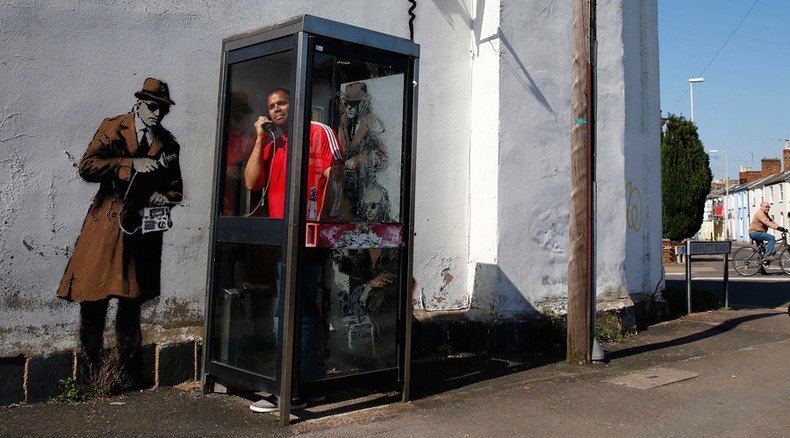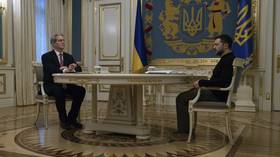Is the government spying on politicians? ‘Blanket surveillance’ probed in court hearing

Three British politicians took the government to court on Tuesday, alleging UK authorities have been illegally spying on MPs and peers through a program of “blanket surveillance.”
The government faced accusations of illegal wiretapping of politicians in a rare public hearing at the Investigatory Powers Tribunal (IPT).
Caroline Lucas MP and Baroness Jones of Muolsecoomb of the Green Party demanded urgent clarification on the scope of the spying, which they claim breaches a doctrine banning surveillance of members of parliament.
Former MP George Galloway joined them at the IPT. He has filed a separate case against the government, which has since been incorporated with that of Lucas and Jones.
Lucas and Jones accuse the government of breaching the “Wilson Doctrine,” which forbids the interception of communications between MPs and their constituents by police or intelligence agencies.
#WilsonDoctrine set up to protect #MPs communications from electronic surveillance. Why should they get special treatment to rest of us?
— Peter Hemming (@aGrumpyGitt) July 23, 2015Established by former Labour Prime Minister Harold Wilson in 1966, the rule came in response to complaints from MPs who were concerned their telephones were being tapped by security services.
Ben Jaffey, counsel for Green Party parliamentarians Caroline Lucas and Lady Jones, told the IPT that MI5, MI6 and GCHQ have operated eight different policies in the last year, most of which fail to comply with the law or the Wilson Doctrine.
Jaffey said that David Miliband, when Labour foreign secretary, authorized an MI6 policy which allowed the agency to intercept MPs communications without the prime minister being notified.
This policy was rewritten in February, bringing it closer in line with an MI5 policy that governed the interception of parliamentarians’ communications from April 2012 to September 2014.
Jaffey told the IPT the policies “fail fully to comply with the law and they fail to comply with public statements as to safeguards.”
He added that “strict safeguards to protect parliamentary communications are an important bulwark for the protection of the public interest.”
Baroness Jones said trust between the public and politicians is at stake.
She said in a statement: “As parliamentarians our job is to hold ministers to account. If our communications are subject to blanket surveillance, and people are less able to freely contact us with important and sensitive revelations, then our ability to do our job is hugely curtailed.
“There is a clear public interest in protecting the communications of Parliamentarians from unnecessary surveillance, which is why we’re bringing this case to court to halt any attempt to trample on the Wilson Doctrine.”
Caroline Lucas MP for Brighton Pavillion expressed concern for whistleblowers seeking to contact MPs: “The blanket surveillance of the communications of Parliamentarians could have a deeply chilling effect on our relationship with the public. Parliamentarians must be a trusted source for whistleblowers and those wishing to challenge actions of the government.
“My constituents have a right to know that their communications with me are free from blanket monitoring.
“It’s absolutely vital that the trust between MPs and constituents is maintained – and that people feel able to communicate freely with their representatives in Parliament,” she added.
Thursday’s hearing followed revelations of the monitoring of calls between MPs and prisoners that surfaced earlier this month.
Prison staff have recorded 3,150 prisoner calls to MPs and downloaded 280 for playback since 2006.
Chief inspector of prisons Nick Hardwick said most calls were listened to “in error.”
Since the establishment of the Wilson Doctrine, subsequent prime ministers have confirmed the rule remains in place, according to a parliamentary briefing paper published last month.
Following the 2013 leaks by former NSA contractor Edward Snowden, in which he revealed US and UK intelligence agencies engage in mass surveillance of private internet and telephone communications, the Wilson Doctrine came under further scrutiny.
Conservative MP David Davis has twice asked ministers if the Wilson Doctrine continues to apply in light of these revelations.
In March 2014, Davis asked whether the long-standing rule applied to metadata – information such as who the communications are sent to, the time of sending and location of sender.
The government has yet to clarify the scope of its surveillance programs, but may be forced to if the IPT rules in favor of Lucas, Jones and Galloway.













